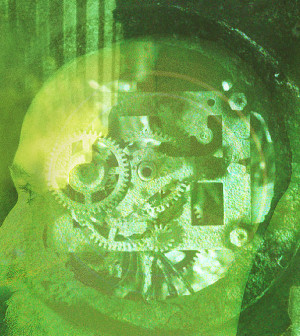- Recognizing the Signs of Hypothyroidism
- 10 Strategies to Overcome Insomnia
- Could Artificial Sweeteners Be Aging the Brain Faster?
- Techniques for Soothing Your Nervous System
- Does the Water in Your House Smell Funny? Here’s Why
- Can a Daily Dose of Apple Cider Vinegar Actually Aid Weight Loss?
- 6 Health Beverages That Can Actually Spike Your Blood Sugar
- Treatment Options for Social Anxiety Disorder
- Understanding the Connection Between Anxiety and Depression
- How Daily Prunes Can Influence Cholesterol and Inflammation
Marijuana Chemical May Help Prevent Epileptic Seizures in Kids, Young Adults

A pill containing cannabidiol (CBD), a key ingredient in marijuana, may reduce seizures for children and young adults with epilepsy, new research suggests.
However, the researchers and outside experts agreed that more investigation is needed before the treatment could be approved for patients.
The finding stems from an investigation led by Dr. Orrin Devinsky, director of the Comprehensive Epilepsy Center at NYU Langone Medical Center in New York City. Conducted during 2014 and 2015, the study involved more than 200 patients at 11 epilepsy care centers across the United States.
Patients were between the ages of 1 and 30, and all had been diagnosed with a form of treatment-resistant epilepsy.
All were given CBD as a pill, starting at a dose of between 2-5 milligrams per kilogram (mg/kg) of body weight per day. Doses were gradually increased to a maximum of between 25 and 50 mg/kg per day over the course of a three-month treatment period.
The result: a nearly 37 percent decline, on average, in the number of seizures experienced on a monthly basis.
That meant that for patients who had been experiencing an average of 30 seizures per month pre-treatment, the number fell to under 16 monthly seizures by the end of the study.
CBD treatment appeared to be both safe and generally well-tolerated, Devinsky’s team said. However, some patients did experience mild forms of drowsiness, loss of appetite, diarrhea, fatigue and/or convulsions, while 20 patients experienced serious side effects, including the advent of long-lasting and/or closely timed seizures.
Overall, however, “we are very encouraged by our trial results,” Devinsky said in a Langone news release. “But before we raise hopes for families who regularly deal with the devastation of treatment-resistant epilepsy, more research, including further studies through our ongoing randomized controlled trial, are needed to definitively recommend CBD as a treatment to patients with uncontrolled seizures.”
The investigating team plans to continue its research. In the meantime, however, Devinsky warned parents of children with epilepsy against embarking on marijuana experimentation on their own.
“I empathize with parents who are looking for answers and will try anything to help their children suffering the devastating effects of intractable epilepsy,” he said. “But we must let the science, and not anecdotal success stories and high media interest, lead this national discussion. Taking CBD in a controlled medical setting is vastly different from going to a state where medical marijuana is legal and experimenting with dosing and CBD strains.”
One expert in epilepsy care said the findings were “exciting,” but only a first step.
“The results of this study stand as a steppingstone toward further studies evaluating the use of marijuana in the treatment of epilepsy,” said Dr. Scott Stevens, attending neurologist at North Shore-LIJ’s Comprehensive Epilepsy Care Center in Great Neck, N.Y.
“Randomized controlled trials are still required prior to using cannabidiol as a potential treatment of our epileptic patients,” he said.
More information
There’s more on the medicinal uses of marijuana at the U.S. National Center for Complementary and Integrative Health.
Source: HealthDay
Copyright © 2026 HealthDay. All rights reserved.










